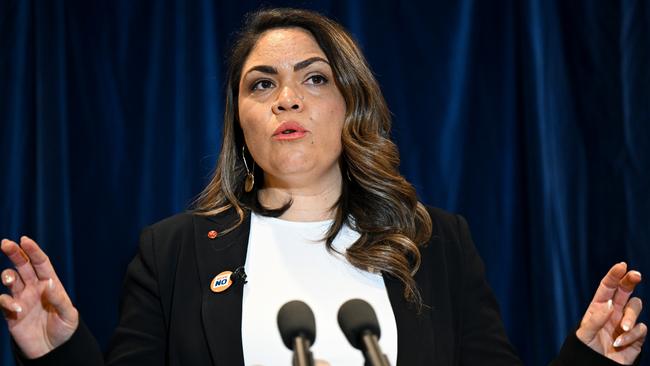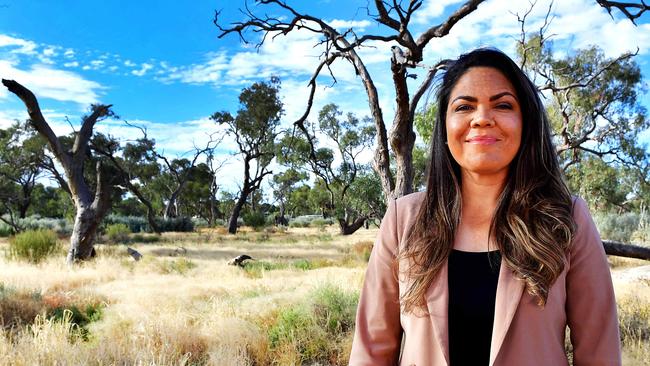Akerman: Why Price is right on Aboriginal demands for perpetual victimhood being grievously harmful
Jacinta Nampijinpa Price in a far better place to judge what’s best for Aborigines, writes Piers Akerman.
Opinion
Don't miss out on the headlines from Opinion. Followed categories will be added to My News.
The increasingly shrill Yes advocates’ manifesto demands the Voice, treaty and truth, but they want to vilify and personally threaten the most courageous and honest Indigenous female representative Aborigines have.
She is Jacinta Nampijinpa Price from Alice Springs, and if you didn’t catch her powerful performance at the National Press Club on Thursday, you should watch it on YouTube before the October 14 referendum on the Voice to Parliament.
Price is not a box-ticker when it comes to Aboriginality. Yes campaigners have subjected her and fellow Indigenous No advocates Warren Mundine and Kerrynne Liddle to vile abuse because she knows what happens in the remote communities where the most disadvantaged Australians live, dictated to by tribal elders who enforce laws cloaked in superstition and semi-traditional custom.
That’s why she so easily batted off the baited question from Guardian reporter Josh Butler, who asked her about the impact of “colonisation” on Aboriginal people.
The impact had been positive, she said, adding: “Now we’ve got running water, readily available food … everything that my grandfather had when he was growing up, because he first saw white fellows in his early adolescence, we now have. Otherwise he would have had to live off the land, provide for his family.”

The Guardian, as with the ABC and Nine Media, like to portray Aboriginal Australians as the victims of European settlement, but Price knows from her experience that demanding Aborigines endure perpetual victimhood is grievously harmful.
As she pointedly but good-humouredly explained: “Aboriginal Australians, many of us have the same opportunities as all other Australians in this country, and we certainly have probably one of the brightest systems … around the world in terms of the democratic structure in comparison to other countries.

“It is why migrants come to flock to Australia, to call Australia home, because (of) the opportunity that exists for all Australians, but if we keep telling Aboriginal people that they are victims, we are effectively removing their agency and then giving them the expectation that someone was responsible for their life.
“That is the worst possible thing you can do to any human being, to tell them that they are a victim without agency and that’s what I refuse to do.”
Clearly shocked, Butler dug himself deeper, asking incredulously: “So you don’t believe there’s any negative ongoing impacts of colonisation on Indigenous Australians today? Just to confirm?”
Price replied: “No, there’s no ongoing negative impacts of colonisation. What I will say … is that particularly for my family and remote communities, again, who live very close to traditional culture, who experienced the highest rates of violence in the country, family violence, interpersonal violence, they experienced that not because of the effects of colonisation, but because it’s expected that young girls (are) married off to older husbands in arranged marriages.”
Price’s mother, Bess, a former MP in the Northern Territory assembly, now teaching in Alice Springs, was in the audience.
When I spoke to her last week, she was rounding up truants. Mother and daughter are immersed in the Alice Springs community and seeking a better outcome for the kids.
They are a long way from Indigenous Australians Minister Linda Burney’s Balmain home or Prime Minister Anthony Albanese’s Marrickville home or his numerous investment properties, and the teals and the Greens.
But they are in a far better place to judge what’s best for Aborigines – vote No.





